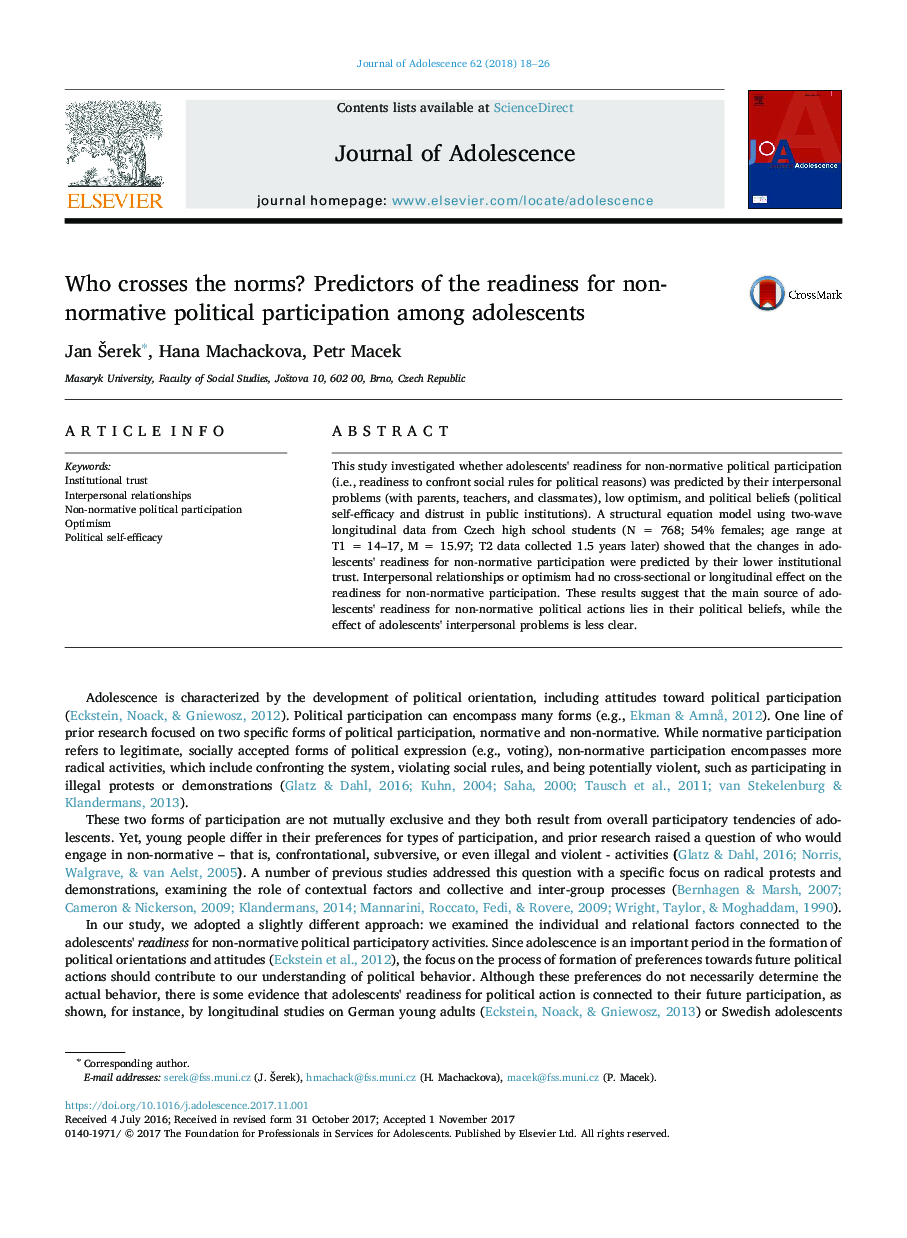| Article ID | Journal | Published Year | Pages | File Type |
|---|---|---|---|---|
| 7240979 | Journal of Adolescence | 2018 | 9 Pages |
Abstract
This study investigated whether adolescents' readiness for non-normative political participation (i.e., readiness to confront social rules for political reasons) was predicted by their interpersonal problems (with parents, teachers, and classmates), low optimism, and political beliefs (political self-efficacy and distrust in public institutions). A structural equation model using two-wave longitudinal data from Czech high school students (NÂ =Â 768; 54% females; age range at T1Â =Â 14-17, MÂ =Â 15.97; T2 data collected 1.5 years later) showed that the changes in adolescents' readiness for non-normative participation were predicted by their lower institutional trust. Interpersonal relationships or optimism had no cross-sectional or longitudinal effect on the readiness for non-normative participation. These results suggest that the main source of adolescents' readiness for non-normative political actions lies in their political beliefs, while the effect of adolescents' interpersonal problems is less clear.
Related Topics
Health Sciences
Medicine and Dentistry
Public Health and Health Policy
Authors
Jan Å erek, Hana Machackova, Petr Macek,
